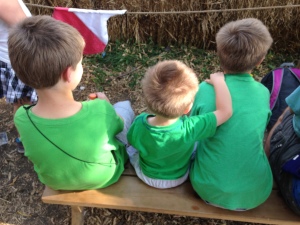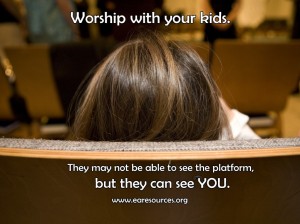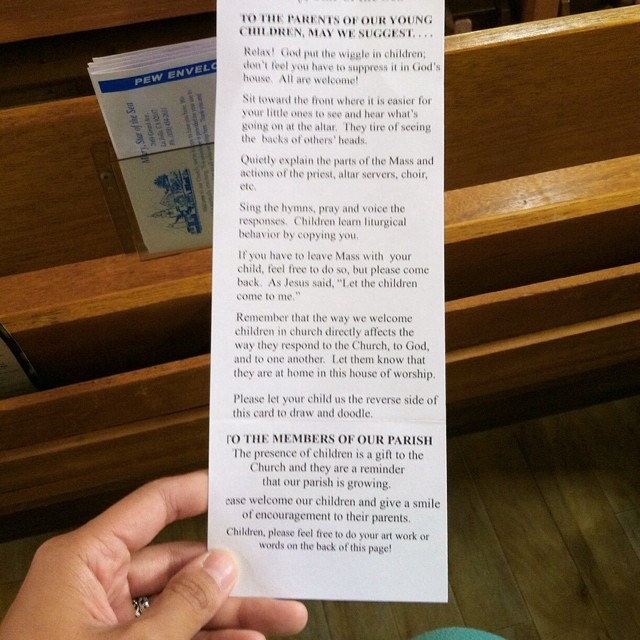I sometimes struggle with making decisions. I can stare at a menu for several minutes while debating between the McChicken or the McDouble. I use my time in the checkout lane debating whether or not I need a king-size candy bar.

© 2007 Anne-Lise Heinrichs, Flickr | CC-BY | via Wylio
While we all sometimes struggle with making decisions, the endless opportunities and never-ending stream of decisions facing emerging adults can be overwhelming. Emerging adults (roughly 18-28) face many important decisions including: personal identity, vocation, education, relationships, and family. Before we call emerging adults wishy-washy, selfish unicorns (or some other nonsensical term pulled from the internet), here are few reasons why making decisions has become so difficult.
1. Lack of Moral Certainty – Is it right or wrong?
Firm moral boundaries once helped people make decisions because certain actions were deemed immoral either by their religious beliefs, or by their family or community. In today’s world, many emerging adults believe the morality of most actions to be uncertain; therefore, they cannot ask, “Is this right or wrong?” Emerging adults are only left with the question, “Is this right or wrong for me?” which just leads them to a new decisions. As a church, we need to restore hope to emerging adults that they can find moral certainty for their decisions.
2. Limitless Reach – Is it even possible?
In today’s world of parenting, a child should never be discouraged from following their dreams – no matter how unlikely. Many children grow up with dreams of being the President, an astronaut, or professional basketball player. This is the generation to whom Dr. Seuss wrote, “Oh the places you will go.” Millennials and their parents believe in their own boundless potential, so now even the tone-deaf are trying out to be the next American Idol.
3. Lack of Institutional Support – Where can I get good advice?

© 2010 Josef Seibel, Flickr | CC-BY | via Wylio
Emerging adulthood is a time when social structures including churches, family, and schools back away, and the individual is often left alone to figure out the myriad of decisions they face. Wuthnow says, “the major decisions a person has to make about marriage, child rearing, and work happen after these support systems have ceased to experience stress and confusion, worry that they are not yet capable of behaving like adults, delay settling down, and often make bad decisions about jobs and money.” (Wuthnow, After the Baby Boomers)
Social institutions often step away during the EA years, and I believe that the church is the most guilty of this crime. Society’s message that adulthood is independence has been heard, and so emerging adults have learned not to ask for help. Most churches have strong support for children, adolescents, and older adulthood while emerging adults are a zone that no one is willing is to claim, and few are willing to enter. (If your community is looking for how to start supporting Emerging Adults, click here!)
4. Lack of Responsibility – Will this decision negatively affect my other responsibilities?
Robbins says, “The prevalent belief is that twenty-somethings have it relatively easy because they do not have as many responsibilities as older individuals. But it is precisely this reduced responsibility that renders the vast array of decisions more difficult to make.” (Quarterlife Crisis) When an individual becomes responsible for a spouse and children, he or she must consider how their decisions will affect their family. For example, a young man may choose to move across the country tomorrow to go look for work by himself, but if he has a wife and child, such a decision seems unlikely. As emerging adults delay marriage and parenting (for more click here), their lack of current responsibility leaves their options open and does not aid in the decision-making process.
5. Lack of Experience – How did I make a decision like this before?
Many emerging adults lack experience at making decisions that count. Afraid that their children will fail, many parents set close boundaries, and do not allow them to make decisions. Making important decisions during adolescence is foundation for becoming autonomous (What is autonomy?). Parents and institutions must allow adolescents and emerging adults to make even bad decisions, and allowing them to learn and grow through the process.
6. Lack of Absolute Truth – What will happen if I do action A?
Many emerging adults are looking for certainty in a world that doesn’t promise it. Doing A + B will not always produce results C. Emerging adults understand their limited perspective, and that even the best decision, could bring forth unexpected results. A lack of certainty causes emerging adults to delay or refuse to make a decision.
We must show emerging adults that their lives do not depend on one decision and its outcome, but that God works through each decision of our lives – good and bad. As Christians, our certainty does not come from the outcome, but from the “God-of-all-Outcomes.”
Parents, emerging adults, and the Church must ask how we can come alongside young adults as they make decisions.
What have you done in order to equip your child, friend, or student to make decisions?
 Dr. G. David Boyd is the Founder and Managing Director of EA Resources, a non-profit designed to equip parents and churches to minister to Emerging Adults. If you would like David to help your community understand the needs of Emerging Adults, contact him at gdavid@earesources.org.
Dr. G. David Boyd is the Founder and Managing Director of EA Resources, a non-profit designed to equip parents and churches to minister to Emerging Adults. If you would like David to help your community understand the needs of Emerging Adults, contact him at gdavid@earesources.org.

 Dr. G. David Boyd is the Founder and Managing Director of EA Resources. He has a passion to help emerging adults and equip churches. He is thankful for his wife Rachel who worked hard to pay off his school loans.
Dr. G. David Boyd is the Founder and Managing Director of EA Resources. He has a passion to help emerging adults and equip churches. He is thankful for his wife Rachel who worked hard to pay off his school loans.













 Emerging adults face an endless array of possibilities. For those who are not equipped to face these decisions, the job can become over-whelming. Earlier this week, I wrote on Six Reasons why Decision-making is so difficult for Emerging Adults.
Emerging adults face an endless array of possibilities. For those who are not equipped to face these decisions, the job can become over-whelming. Earlier this week, I wrote on Six Reasons why Decision-making is so difficult for Emerging Adults.




